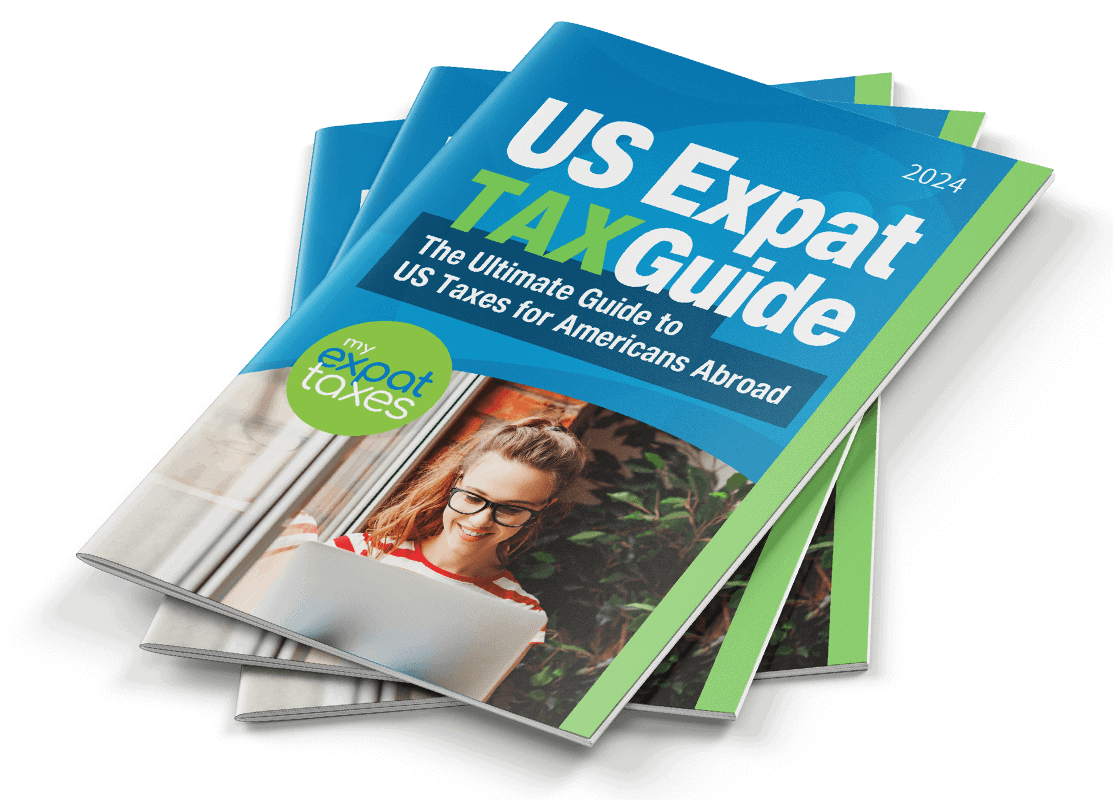Expat Tax Benefits for Americans Living Abroad
January 22, 2024 | ExpatTaxGuide | 4 minute read
Expat Tax Guide | Everything you need to know about filing taxes abroad in 2024
 Verified by IRS Enrolled Agents and CPAs
Verified by IRS Enrolled Agents and CPAs
Avoid Double Taxation from these Expat Tax Benefits
Double taxation happens when you have to pay taxes on the same income twice. For example, you could be working as a sales manager in Amsterdam as a US citizen. Then when tax season hits, you have to pay Amsterdam taxes and US taxes from the same source of money. This is double taxation. Luckily for US expats, there are benefits such as Foreign Earned Income Exclusion, Foreign Tax Credit with the help of treaties that can help prevent being double-taxed.
The US actually has effective expat tax benefits and tax treaties to prevent American expats from being double taxed. They are as follows:
Foreign Earned Income Exclusion 2023:
The Foreign Earned Income Exclusion, or FEIE, is also known as Form 2555 by the IRS. This expat benefit allows you to avoid double taxation by excluding up to a certain amount of foreign earned income from your US taxes. In 2024, for the 2023 tax year, you can exclude up to $120,000 of foreign earned income. Make sure you convert your foreign currency to US dollars to see if you make it under the limit (or MyExpatTaxes can do the conversion for you!).
Am I Eligible to Use FEIE?
You can use the bona fide residence test OR physical presence test to determine whether you are eligible to use the Foreign Earned Income Exclusion.
- Bona Fide Residence test: Were you a registered resident subject to local income taxes in your host country for at least a full calendar year? Then you can claim the FEIE for up to the maximum amount ($120,000).
- Physical Presence Test: You will need to be outside of the US for 330 full days in a consecutive 12-month period, that begins or ends in the tax year. If yes, you qualify for the FEIE. Depending on your qualifying period, you may have to prorate the maximum FEIE amount you can take.
Have you qualified to use the FEIE? If so, you could also be eligible for foreign housing deductions, which can help you reduce tax liability even more! For example, the Foreign Housing Exclusion can exclude qualified housing expenses like rent, utilities, or repairs from taxation.

How do I calculate my foreign-earned income, for the exclusion?
- Let’s say you earned $122,900 as a foreign income. Subtract the maximum exclusion rate ($120,000) from your yearly salary. This leaves $2,900 that becomes taxable by the IRS.
The taxable amount is taxed at the rate applied to what you originally earned – the stacking rule. Any other income from pension funds, interest, capital gains, etc, cannot be excluded from the IRS foreign income exclusion. Plus, you can increase your foreign exclusion with qualified housing expenses as well.
The FEIE amount is prorated based on the number of your qualifying days. The maximum FEIE amount is available for those who use the Foreign Earned Income Exclusion for the entire tax year.
Need an FEIE extension in 2024?
If you may need additional time to file because maybe you have just moved abroad and the tax deadline is near. Don’t worry, you can file an extension (Form 2350 or 4868) through us.
Foreign Tax Credit
The FTC or Foreign Tax Credit is a dollar-for-dollar reduction from the IRS towards your foreign-earned income. For example, if you paid 300 US dollars (after conversion) to the Icelandic government as a resident of the foreign country, you can take a 300 US dollar credit and apply it to any US taxes you owe.
What about the Foreign Earned Income Exclusion? As an American expat, you cannot take this tax credit from the income you excluded from the FEIE.
You can avoid Double Taxation with the Foreign Tax Credit in the following ways:
- Identify which of your income is foreign sourced
- Check if your income is general, passive, or falls into another foreign tax credit category
- Calculate the maximum amount of foreign tax credit you can claim on your federal tax return through Form 1116
- Keep records of all unused foreign tax credits for the next tax year. These credits are available to carry over for ten years.
Additionally, if you have US-sourced income from business trips or other reasons that you believe should be considered foreign-sourced, look at your country’s tax treaty for guidance.
Tax Treaties
Essentially, the US and certain foreign countries have agreed to reduce or eliminate dual-income taxation for Americans living and working abroad.
Tax Treaties are beneficial when determining how to declare income such as a pension, social security benefits, alimony, etc. Anything which cannot be excluded via FEIE and are not subject to local income tax in your resident country.
Tax Treaties are different than Totalization Agreements (see below). Through treaties, residents, such as Americans living in foreign countries, are taxed at a reduced rate or exempt from US taxes in certain income items from sources in the US. Rates and specific items of income vary between each foreign country. If the foreign country you’re living in does not have a treaty with the US, you may be double-taxed. This is taxing income for both the US and the foreign country.
See if your country has a tax treaty with the US with the IRS website.
Totalization Agreements (US Self-Employment Tax)
The Totalization Agreements result from the US and IRS coming together with 26 countries worldwide to place measures for preventing dual social security taxation for Americans abroad.
Americans living in countries like France, Germany, Belgium, and Australia can avoid paying social security taxes to both the US and the host country by choosing where to contribute. The IRS provides a list of countries covered by the Totalization Agreement.
Plus, these agreements for US citizens abroad factor in where you were hired, where your employment is sourced, and how long you plan to stay overseas. These agreements help American expats avoid foreign social security costs if they do not intend to stay abroad for more than 5 years and/or if they are sent overseas on a short-term contract.
If you do not plan to return to the US as an American expat, especially after 5 years, you can generally pay into the social insurance of the foreign country you are living in. After all, you will want to be covered based on retirement and health care from where you live.
Tax Guide Topics
Search Tax Guide
Getting Help with Unfiled Tax Returns as US Expat
Have you missed more than a few tax returns since moving abroad? If so, you’ll have a stack of unfiled returns that require your attention. Let’s say you forgot or…
Read More ...Abandoning Your Green Card – A Guide
What is a Green Card? A Green Card allows individuals to live and work inside the US permanently. With a Green Card, you do not need to go through the hassle of applying for…
Read More ...FATCA and Foreign Bank Account Information for Expats
Your Foreign Bank Account and FATCA in Every foreign bank account you open as an American abroad means you are connected to the FATCA law. This law allows the US…
Read More ...Stimulus Checks for Americans Abroad in 2024
Are you an American living abroad? You might have heard about the stimulus checks handed out during Covid-19. These checks acted as a financial relief to many American families. In…
Read More ...US Tax Support for Americans Retiring Abroad
Retired or Planning to Retire in 2024? If you are an expat planning your retirement, you need to know that Americans in the US and abroad can gain retiree support…
Read More ...Self-Employment Taxes for Americans Living Abroad
Self-Employment Taxes for US Expats in 2024 If you are your own boss and have control over the services you provide, you are considered self-employed, and the income earned from…
Read More ...




